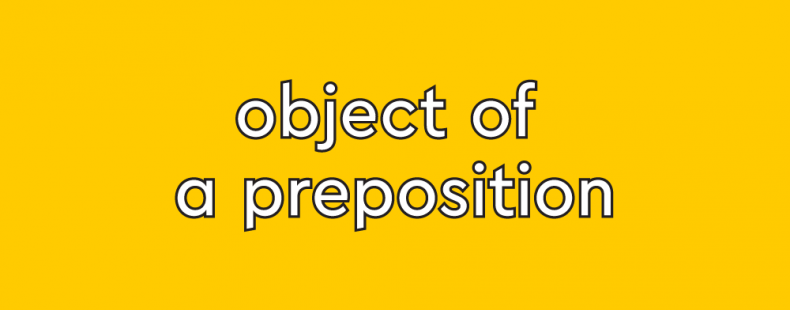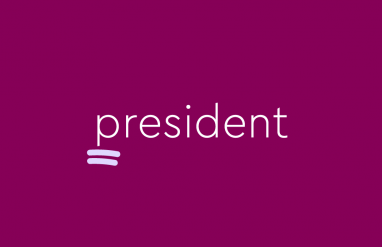Prepositional phrases are handy modifiers that we can use to jazz up our sentences. Using prepositional phrases, we can turn a boring sentence like Nathan works into a great sentence like Nathan works at a secret base on the moon. Prepositional phrases are made of two main parts. Typically, prepositions get most of the attention, and prepositional phrases are even named after them. However, the objects of the prepositions do a lot of work, and they deserve some of the credit, too.
What is a preposition?
A preposition is any word that can be used to introduce a prepositional phrase. Prepositional phrases are phrases that are used as modifiers of nouns, verbs, adjectives, and adverbs. For example, the sentence She is a friend of mine uses the prepositional phrase of mine to modify the noun friend. The prepositional phrase tells us more about the friend. As another example, the sentence We went to Jamaica during the summer uses two prepositional phrases (to Jamaica and during the summer) to modify the verb went. These prepositional phrases say where and when we went.
The object of a preposition is a noun (or word/phrase acting as a noun) that works with a preposition to form a prepositional phrase. The object is being affected or referenced by the preposition.
An object of a preposition follows the preposition itself, and the preposition acts as the bridge between the object and whatever part of speech the prepositional phrase is modifying.
Let’s demonstrate with some examples:
- “We heard the howling of wolves.” The noun wolves is the object of the preposition of. The word of connects wolves to the gerund howling. This prepositional phrase tells us more about the howling by stating who or what was performing the howling.
- “He slept until noon.” The noun noon is the object of the preposition until, which connects noon with the verb slept. This prepositional phrase tells us more about the verb slept by providing the time that the sleeping stopped.
In practice, the object of a preposition serves a similar function to direct objects and indirect objects in sentences and clauses in that it is “acted on” by a preposition in a similar manner that direct and indirect objects are acted on by verbs.
Object of a preposition examples
Before we get more complex, let’s look at some examples of sentences that use simple prepositional phrases. In each sentence, the object of the preposition is underlined.
- Daniela gave a present to Philip.
- A flock of seagulls flew overhead.
- The painting was purchased by a collector.
- Pizza comes from Italy.
- The concert was held for charity.
In addition to nouns, the object of a preposition can also be other parts of speech that can act as nouns, such as pronouns or gerunds:
- Pronoun: I gave the book to her.
- Gerund: My sister knows a lot about investing.
Prepositional phrase modifiers
Prepositional phrases often get more complex. In addition to the preposition and its object, a prepositional phrase can also include words and phrases that modify the object. For example:
- The robin gave food to her hungry chicks.
- Boxes of expensive watches sat on the recently cleaned counter.
- She wrote a song about 99 red balloons.
Because English loves to trip us up, it is also possible for the object of a preposition to be modified by … another preposition!
- Santa’s bag was full of Christmas gifts for children. The prepositional phrase for children modifies the noun gifts. The noun gifts is itself the object of the prepositional phrase of Christmas gifts that modifies the adjective full.
Learn about how to find the subject and predicates of any sentence or clause.
Noun phrases & clauses after prepositions
In addition to single words, it is also possible for a noun phrase or a noun clause to act as an object of a preposition. This can result in some particularly long and complex prepositional phrases:
- Noun phrase: The comic book is about a rich guy dressed like a bat.
- Noun phrase: He is searching for the girl who can talk to ghosts.
- Noun clause: The extra donuts are free to whoever wants them.
- Noun clause: She is saving her trump card for when she needs it most.
Object of a preposition rules & best practices
There are a few things to watch out for when using objects in prepositional phrases.
Subject-verb agreement
The object of a preposition never acts as the subject of a sentence. Because an object of a preposition may be placed near a verb, a common mistake is to confuse it for the subject of a sentence. Only the subject determines if a verb will be singular or plural.
Take a look at the following sentence:
- The colors of the flag is red, white, and blue.
The subject of this sentence is the plural noun colors and not the singular noun flag. Flag is the object of a prepositional phrase modifying the subject colors. The verb must agree with the subject of the sentence, so this sentence should read:
- The colors of the flag are red, white, and blue.
Sometimes, sentences can get long and complicated, so it is always important to navigate through prepositional phrases and other modifiers to identify the true subject of the sentence:
- That man (singular subject) of wealth and for whom the greatest joy in life is giving speeches to hundreds of impressed onlookers wearing Roman togas with sparkly tassels has (singular verb) a big hat.
Only object pronouns can be used as objects of prepositions
As you may know, pronouns can function as subject or object pronouns. A subject pronoun is a pronoun that can fill in for a noun as the subject of a sentence or clause. Subject pronouns can’t be used as objects, and that means, they can’t be used as the objects of prepositions. This rule makes sense and is usually pretty simple:
❌ Incorrect: We had a party for she. (She is a subject pronoun.)
✅ Correct: We had a party for her. (Her is an object pronoun.)
❌Improper: The cat pounced on I. (I is a subject pronoun.)
✅ Correct: The cat pounced on me. (Me is an object pronoun.)
A common mistake is confusing the pronouns who and whom. Who is a subject pronoun, and whom is an object pronoun. This means that whom is the one that should be used as the object of a preposition.
❌ Improper: The jacket belongs to who?
✅ Correct: The jacket belongs to whom?
❌ Improper: You are going to the prom with who?
✅ Correct: You are going to the prom with whom?
⚡️Be careful when modifying pronouns
Sometimes, things get tricky when a prepositional phrase modifies a pronoun. Some indefinite pronouns, such as the words all, any, more, most, some, and such can be either singular or plural. Because these words do not change, we often use prepositional phrases to clarify if the word is singular or plural. In this case, the object of the preposition will tell you what verb should be used.
For example:
- Some of the wall is covered in paint.
- Some of the guests are sitting outside.
- All of the island is covered in snow.
- All of the monkeys have long tails.
Write smarter with Grammar Coach™
Confused about prepositional phrases and their proper uses? Let Thesaurus.com Grammar Coach™ guide you! This writing platform uses machine learning technology uniquely designed to catch grammar as well as spelling errors. Plus, Grammar Coach™ Synonym Swap will find the best nouns, adjectives, and more to help say what you really mean, guiding you toward clearer, stronger, writing.















